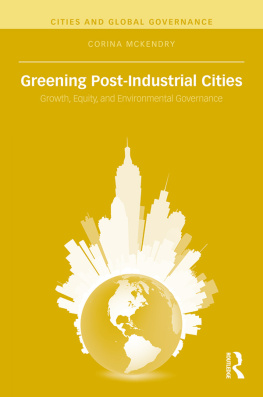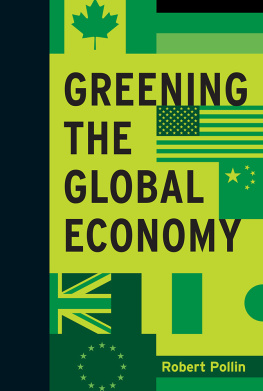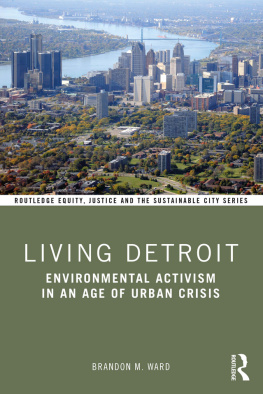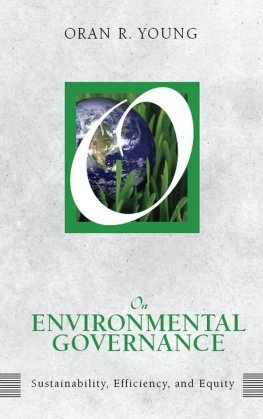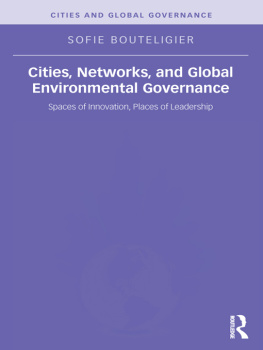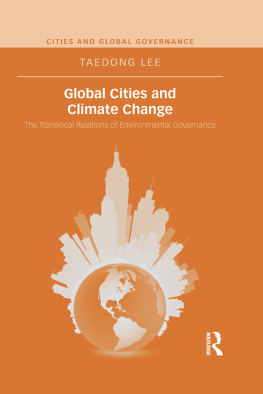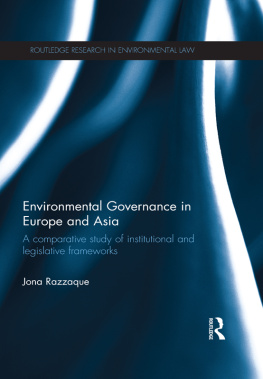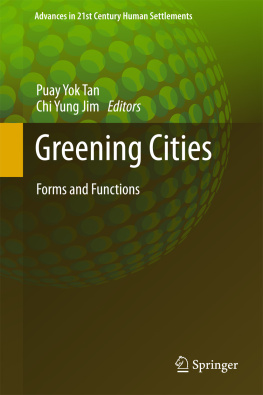Greening Post-Industrial Cities
City greening has been heralded for contributing to environmental governance and critiqued for exacerbating displacement and inequality.
Bringing these two disparate analyses into conversation, this book offers a comparative understanding of how tensions between growth, environmental protection, and social equity are playing out in practice. Examining Chicago, USA, Birmingham, UK, and Vancouver, Canada, McKendry argues that city greening efforts were closely connected to processes of post-industrial branding in the neoliberal economy. While this brought some benefits, concerns about the unequal distribution of these benefits and greenings limited environmental impact challenged its legitimacy. In response, city leaders have moved toward initiatives that strive to better address environmental effectiveness and social equity while still spurring growth. Through an analysis that highlights how different varieties of liberal environmentalism are manifested in each case, this book illustrates that cities, though constrained by inconsistent political will and broader political and economic contexts, are making contributions to more effective, socially just environmental governance.
Both critical and hopeful, McKendrys work will interest scholars of city greening, environmental governance, and comparative urban politics.
Corina McKendry is Associate Professor of Political Science and core faculty of the Environmental Program at Colorado College.
Cities and Global Governance
Edited by Noah J. Toly
Wheaton College
The Routledge series Cities and Global Governance is composed of contributed volumes covering key areas of study at the intersection of urbanism and global governance. Each title explores dimensions of the relationship between the local and the global, between urban landscapes and global dynamics. Authors in the series make empirical and theoretical contributions that advance our understanding of the role of cities as sites and actors in global governance.
For a full list of titles in this series, please visit www.routledge.com/Cities-and-Global-Governance/book-series/CGG
Cities, Networks, and Global Environmental Governance
Spaces of Innovation, Places of Leadership
Sofie Bouteligier
The Power of Cities in International Relations
Edited by Simon Curtis
Global Cities and Climate Change
The Translocal Relations of Environmental Governance
Taedong Lee
The Urban Climate Challenge
Rethinking the Role of Cities in the Global Climate Regime
Edited by Craig Johnson, Noah Toly, and Heike Schroeder
The Global City 2.0
From Strategic Site to Global Actor
Kristin Ljungkvist
Greening Post-Industrial Cities
Growth, Equity, and Environmental Governance
Corina McKendry
Greening Post-Industrial Cities
Growth, Equity, and Environmental Governance
Corina McKendry
First published 2018
by Routledge
711 Third Avenue, New York, NY 10017
and by Routledge
2 Park Square, Milton Park, Abingdon, Oxon, OX14 4RN
Routledge is an imprint of the Taylor & Francis Group, an informa business
2018 Taylor & Francis
The right of Corina McKendry to be identified as author of this work has been asserted by her in accordance with sections 77 and 78 of the Copyright, Designs and Patents Act 1988.
All rights reserved. No part of this book may be reprinted or reproduced or utilised in any form or by any electronic, mechanical, or other means, now known or hereafter invented, including photocopying and recording, or in any information storage or retrieval system, without permission in writing from the publishers.
Trademark notice: Product or corporate names may be trademarks or registered trademarks, and are used only for identification and explanation without intent to infringe.
Library of Congress Cataloging-in-Publication Data
A catalog record for this book has been requested
ISBN: 978-1-138-77613-5 (hbk)
ISBN: 978-1-315-77340-7 (ebk)
Typeset in Sabon
by Out of House Publishing
This book is dedicated to my grandparents, Rev. Dr. T. William Hall and Ruth Fisher Hall M.Ed., for their century of living with gratitude and curiosity.
Contents
Work on this book began nine years ago. When the project began, with only Chicago, Illinois and Birmingham, England as case studies, both cities were at the pinnacle of their efforts to use greening as a post-industrial branding strategy. Environmental amenities had transformed their once fading city centers, and elected officials were proclaiming their commitment to becoming leaders in climate governance. My original analysis of what I called green urban entrepreneurialism was fairly critical. Though the cities were making some steps toward greater environmental sustainability, their efforts paled in comparison to their rhetoric. Even more disturbing was the distributional implications of green urban entrepreneurialism. The cities were focusing on city center prestige projects, and the transfer of public funds to beautification and away from social welfare was obfuscated by city leaders claims of the supposedly universal benefits of the greener city. This led me to argue that the promise of cities making a contribution to global environmental governance was at best overstated and at worst a distraction from the larger political changes that needed to occur to achieve social and environmental sustainability.
As the years have passed, I returned to Chicago and Birmingham and began to investigate the city of Vancouver, British Columbia. What has transpired in these cities has led me to a more nuanced analysis of the environmental effectiveness and equity potential of city greening. I have become more convinced that cities, though significantly limited by the broader regulatory and political-economic processes of which they are a part, are nevertheless able to undertake policies with environmental merit. I have also seen a shift toward a greater incorporation of equity into the practices of city greening. Though gentrification, a prioritization of the green consumption preferences of the middle class, and use of scarce public funds for green amenities all remain serious concerns, important steps have been taken by city officials toward a more holistic understanding of the relationship between social and environmental sustainability. The power of globalized capital and of national environmental and urban policies remains pronounced, but local social movements and the political will of city leaders has increasingly challenged the greener city to also be a more equitable one. This is not to say that any of the three cities examined here are equitable, or that they could not be doing more to contribute to effective environmental governance. But the shift in both discourse and practice toward a more inclusive green city has been notable.
Data for this book have come from a variety of sources. Most important has been interviews conducted over the years with elected officials, current and former city staff, local business leaders, and environmental advocates and activists. With interviewees permission, interviews were recorded, transcribed, and analyzed for recurring themes. If the location of the interview was inappropriate for recording (usually because of noise in a public meeting space), detailed notes were taken of the conversation. Though only a few interviewees requested anonymity, in the chapters that follow I have made all interviews anonymous. Other important data sources are government documents and reports, press releases, news coverage of key events, and peer reviewed studies of the case cities.


